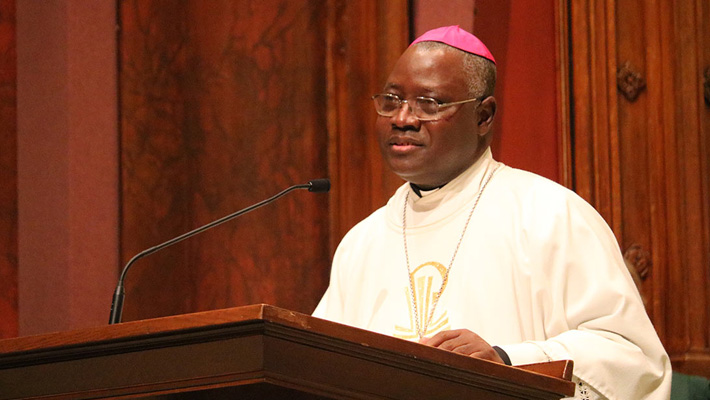ABUJA, JUNE 2, 2020 (CISA) – In his Pentecost Sunday homily of May 31 Archbishop Ignatius Kaigama of Abuja called on Nigerians to embrace the diversity of cultures and languages in the country to bring progress in society and spread the gospel.
“Nigeria is the most populated country on the African continent with a population of over 200 million. Somehow, we allow our over 400 languages and the difference of religions to hurt us badly politically, economically and socially. We fail to make very significant progress because we still don’t speak a common language of love. The language we speak is of war, superiority, pride, prejudice, hatred, threats, discrimination,” he said during Mass at the Church of Assumption Asokoro, Abuja
The Archbishop noted that language or culture should not be a barrier to the Gospel or to individual and collective happiness and human progress, adding that the gifts and abilities possessed by each person should be valued and used for the good of society.
“The varieties of gifts bestowed by the Holy Spirit are not for show but for service; not to magnify those who possess them but to edify the people of God; not for the advancement of personal advantages but for the general good of the Church, to spread and advance the Gospel.
It must be borne in mind that every gift is significant for the society and every human being is important and must be treated with honour,” he said.
“We have the tendency to ignore or look down on people we think don’t have much to offer. Pentecost reminds us not to look down on anyone. Do not be possessed by your beauty, knowledge, strength, wealth, stardom,” he added.
He called for the upholding of the African spirit of unity, communal living, harmony and service.
“Our African culture emphasizes community spirit and living…whatever you do impacts others, what affects one, affects all. This our manner of life is in danger of being lost due to modern life-style. We must not allow the social distancing occasioned by urbanization and now the coronavirus pandemic to rob us of this beautiful African social gift. In our culture, a person is a person because of other persons.”
